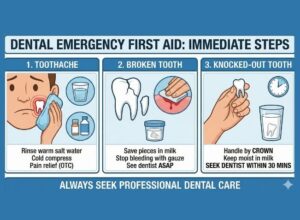Understanding Brain Fog
Feeling like you’re walking through a thick fog even though you’re wide awake? That’s what we call brain fog. It’s like having a cloudy mind, where thinking becomes a challenge. Many factors contribute to this mental haze, including stress, lack of sleep, poor nutrition, and certain medical conditions.
Recognizing the Symptoms
Identifying brain fog can be tricky because it manifests differently for everyone. Some common signs include forgetfulness, difficulty concentrating, confusion, and feeling mentally sluggish. If you find yourself struggling to focus or remember things, you might be experiencing brain fog.
How Brain Fog Affects Daily Life
Brain fog isn’t just an annoyance; it can significantly impact your daily activities and productivity. Simple tasks may take longer to complete, and making decisions becomes more challenging. This mental fog can also affect your mood, leaving you feeling irritable or unmotivated.
Strategies to Clear the Fog
Now that we understand what brain fog is, let’s explore some effective strategies to overcome it:
1. Prioritize Sleep
Quality sleep is crucial for a clear mind. Aim for 7-9 hours of uninterrupted sleep each night to allow your brain to recharge. Establish a relaxing bedtime routine and create a comfortable sleep environment to promote restful sleep.
2. Stay Hydrated and Eat Well
Your brain needs proper hydration and nutrition to function optimally. Drink plenty of water throughout the day to stay hydrated, and fuel your body with nutritious foods rich in vitamins, minerals, and antioxidants. Incorporate fruits, vegetables, whole grains, and lean proteins into your diet to support cognitive health.
Hydration and Brain Function
Did you know that dehydration can worsen brain fog? Make it a habit to drink water regularly to keep your mind sharp and clear.
3. Manage Stress
Chronic stress can contribute to brain fog and other cognitive issues. Find healthy ways to manage stress, such as practicing relaxation techniques, mindfulness meditation, deep breathing exercises, or engaging in enjoyable activities. Prioritize self-care and make time for activities that promote relaxation and emotional well-being.
4. Get Moving
Physical activity not only benefits your body but also your brain. Regular exercise increases blood flow to the brain, delivering oxygen and nutrients essential for cognitive function. Aim for at least 30 minutes of moderate exercise most days of the week, whether it’s brisk walking, jogging, cycling, or dancing.
The Link Between Exercise and Mental Clarity
Exercise stimulates the release of endorphins, neurotransmitters that boost mood and reduce stress. Incorporating physical activity into your routine can help clear away brain fog and improve mental clarity.
Conclusion
Brain fog is a common experience that can disrupt your daily life and productivity. By understanding its causes and implementing effective strategies, you can clear away the mental haze and regain clarity of mind. Prioritize sleep, maintain a balanced diet, manage stress, and stay active to support your cognitive health and banish brain fog for good. Remember, small lifestyle changes can lead to significant improvements in mental clarity and overall well-being.
 Now
Now








